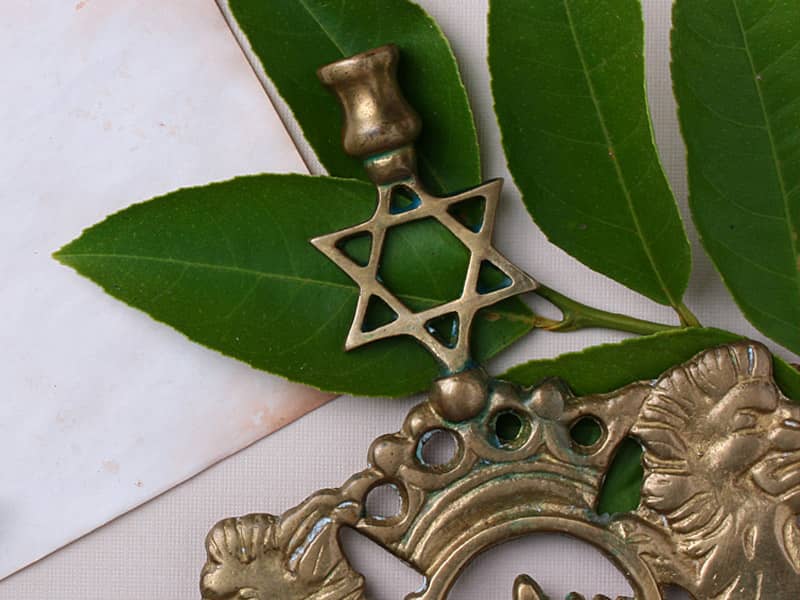Their assertion is unsound. There is no decisive ruling in the halakah that any part of the Holy Land--including the Temple Mount--once acquired by Jews, may not become part of some other arrangement if that suits the immediate purposes of a secular Jewish sovereignty.
The chief rabbinate of Israel itself has been most insistent that Jews should not actually ascend the Temple Mount, lest we contaminate this holy place with our ritual impurities. As a result, observant Jews generally do not go onto the Temple Mount at all, preferring not to venture past the Western Wall. We are, therefore, in a paradox: We dare not ever be present in the very place for which we dare not make arrangements that might lessen the conflict of Jews and Muslims.
In the aftermath of the 1967 Six Day War--when Israel won control of the Temple Mount--Moshe Dayan, Israel's then-defense minister, arranged for the Muslim authorities, the Waqf, to administer and control the portion of the Temple Mount beyond the Western Wall without interference by Israeli authorities. I am particularly intrigued by the silence of the chief rabbinate in all the years since then. Was this arrangement not, de facto, a surrender by a Jewish sovereign authority--the State of Israel--of rule over the Temple Mount in return for a pragmatic arrangement that would keep the peace?
The chief rabbinate of Israel has quietly assented to this arrangement for more than 30 years. Why the sudden passion to forbid any further negotiation on this issue now? What the chief rabbis are saying today is not halakhah, it is right-wing politics. It is not even religious Zionism, at least not as it was defined at the very beginning. So let us return to the sources of religious Zionism to understand how much in error they are--and why they have taken this turn.
There are various events that can be counted as the birth of modern Zionism, but I would say that it began in the 1830s in the mind of a Sephardic rabbi, Yehudah Hai Alkalai. He was moved and even entranced by the awakening of modern nationalism in the Balkans and especially among the Greeks, who were completing a successful revolt against the Turks. Why should not the Jews, so Alkalai wrote, who were among the oldest of all the nations, not work to re-establish their own national identity and independence? Why should the Jews not return now, in the age of nationalism, to their country from which they had been driven nearly 2,000 years before?
But Alkalai, the believer and Kabbalist (mystic), knew that Jews had long been forbidden to undertake such an effort at self-redemption. The Talmud had ruled that they had been exiled because of their sins, and so the Jews had to wait until God Himself was satisfied that the time had come for their redemption.
To be sure, nearly a century later, Rabbi Abraham Isaac Kook taught that the human effort that the Zionists had begun was the first stage of the divine redemption; all the activities that helped to reconstitute the Israeli nation and redeem its land were happening according to a timetable that was set in heaven. Rabbi Kook's personality was so powerful, and his vision was so heady and inspiring, that it became the dominant influence among religious Zionists.
How could one ever trade even an acre of land over which the blue and white flag had been raised, especially if some Jews had moved in? Would this not be a betrayal of the divinely ordained process of redemption? Never mind what advantages might come to the Jews, in the here and now, from such exchanges. God Himself would be displeased, and so Kook's shining vision of redemption through settlement and politics--and, as his son Zvi Yehuda added, through war if necessary--has become a straitjacket. Israel is forbidden to move pragmatically because some of its citizens, and their supporters abroad, are speaking in the name of God Himself. They are thundering that political decisions, made by human wisdom and reason, are forbidden if they are contrary to the "will of God."
Almost two centuries ago, Rabbi Alkalai made a clear decision that political and resettlement endeavors were permissible but that the ultimate redemption of Jews belonged to God.
A cold and rational assessment of the present scene does not necessarily dictate a "deal." One can argue that the Arab world would not agree to accept the 4 million Palestinian refugees currently in refugee camps as permanent residents, a stipulation that is at the heart of the current framework for a deal. The Jewish world would, therefore, be giving up something precious in return for nothing. On the other hand, it can be maintained that such a "deal," despite its uncertainties, is the best hope that we have for a historic breakthrough. It may work imperfectly, or even not at all, but since it would be a political arrangement, it is not heretical or irreversible.
Since I believe in God--in the Jewish God Who promised us the return to Zion--I have no doubt that the Temple Mount will ultimately be the center of our faith, in the messianic day when Zion and Jerusalem will make manifest God's presence in the world. What we might do now in the political realm, to quiet warfare and to save lives, seems very much a divine commandment, for His other name is peace.
I am a great admirer of Rabbi Abraham Isaac Kook, but ultimately I am a Zionist "old believer." It was Rabbi Alkalai who made the important distinction between what we do in the political realm on the basis of human wisdom and what we await in the realm of faith.

